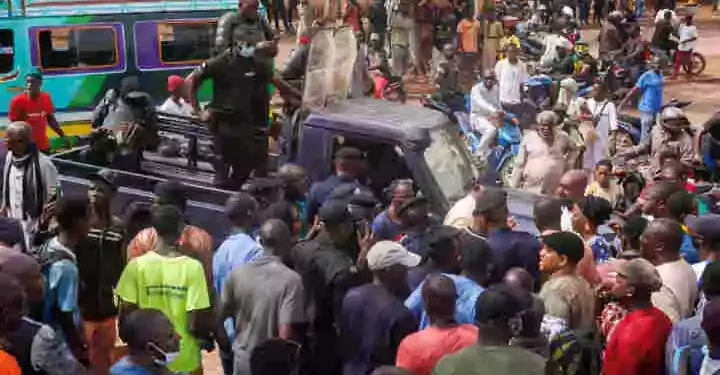Mali’s military regime has officially disbanded all political parties and prohibited their operations nationwide, imposing strict sanctions on any noncompliance.
This declaration was made on state television on Tuesday following an urgent government meeting, during which officials abolished the national charter governing political parties.
Mamani Nassiré, the minister responsible for political reform and electoral processes, stated, “We are undergoing a reform process.” He indicated that new legislation would be created to regulate the political landscape in Mali.
The government aims to decrease the number of political parties, complicate the formation of new ones, and potentially eliminate public funding for them.
While officials appointed through political parties can retain their positions, they are prohibited from representing or acting on behalf of those parties.
### Suppression of Opposition Voices
Political entities had been cautioning for weeks that this action was unconstitutional and posed a significant threat to democracy.
Protests erupted in early May, marking a rare display of public dissent in Mali. However, in the following days, several opposition leaders were detained by state security forces, leading pro-democracy groups to largely retreat from the public eye.
“This comes as no surprise. We will continue to resist, even from the shadows. This dissolution exacerbates Mali’s existing challenges,” remarked an activist who spoke to RFI.
A former minister described the situation as “a logical progression, yet serious and unprecedented.” Another opposition figure warned that this decision “paves the way for autocratic rule,” asserting, “Our ideas will find expression one way or another. Their primary concern is maintaining power. We will organize our struggle and ultimately prevail.”
### Escalating Protests as Opposition Leader Faces Charges
### A Shift Back to Dictatorship
An opponent declared that this decree signifies a regression to dictatorship, reminiscent of General Moussa Traoré’s rule until 1991. “With this decree, we have officially reverted to dictatorship,” they stated. “The struggle will be arduous, but Malians have a historical commitment to democracy,” referencing the Mandé Charter of 1236, often regarded as an early declaration of human rights.
While some political figures may seek legal recourse, the dissolution of parties complicates their ability to act on their own behalf. Public demonstrations now come with heightened risks.
This decision followed a national conference held last month, where participants advised the dissolution of political parties and proposed granting military leader Assimi Goïta a five-year presidential term. Goïta ascended to power after two coups in 2020 and 2021.
Public unrest has been escalating, with hundreds protesting in Bamako on May 3 and 4, chanting slogans such as “Down with dictatorship, long live democracy,” as reported by Reuters.
Authorities suspended political activities last Friday, which forced the opposition to cancel an organized protest.
Missing Opposition Figures
Three opposition leaders are currently feared abducted. Abba Alhassane, secretary general of the opposition party CODEM, was reportedly detained last week by “masked gunmen claiming to be gendarmes,” according to Human Rights Watch.
On the same day, reports indicated that “unidentified men” had seized El Bachir Thiam, head of the Yelema party, in Kati, near Bamako.
A CODEM member informed Reuters that the party had not heard from youth leader Abdoul Karim Traoré for two days and suspected he too had been taken. For safety reasons, the individual requested anonymity.
The military government has yet to respond to inquiries regarding these incidents.
Initially, the military government had committed to conducting elections in February 2022, but the transition to civilian governance has faced continuous delays.











